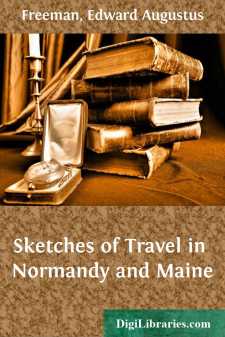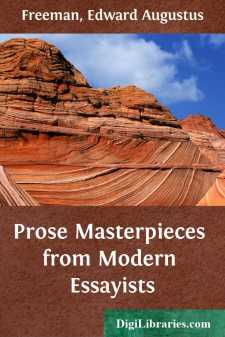Categories
- Antiques & Collectibles 13
- Architecture 36
- Art 48
- Bibles 22
- Biography & Autobiography 813
- Body, Mind & Spirit 142
- Business & Economics 28
- Children's Books 17
- Children's Fiction 14
- Computers 4
- Cooking 94
- Crafts & Hobbies 4
- Drama 346
- Education 46
- Family & Relationships 57
- Fiction 11829
- Games 19
- Gardening 17
- Health & Fitness 34
- History 1377
- House & Home 1
- Humor 147
- Juvenile Fiction 1873
- Juvenile Nonfiction 202
- Language Arts & Disciplines 88
- Law 16
- Literary Collections 686
- Literary Criticism 179
- Mathematics 13
- Medical 41
- Music 40
- Nature 179
- Non-Classifiable 1768
- Performing Arts 7
- Periodicals 1453
- Philosophy 64
- Photography 2
- Poetry 896
- Political Science 203
- Psychology 42
- Reference 154
- Religion 513
- Science 126
- Self-Help 84
- Social Science 81
- Sports & Recreation 34
- Study Aids 3
- Technology & Engineering 59
- Transportation 23
- Travel 463
- True Crime 29
Sketches of Travel in Normandy and Maine
Description:
Excerpt
PREFACE
"Beyond doubt the finished historian must be a traveller: he must see with his own eyes the true look of a wide land; he must see, too, with his eyes the very spots where great events happened; he must mark the lie of a city, and take in, as far as a non-technical eye can, all that is special about a battle-field."
So wrote Mr. Freeman in his Methods of Historical Study, and he possessed to the full the instincts of the traveller as well as of the historian. His studies and sketches of travels, already published, have shown him a wanderer in many lands and a keen observer of many peoples and their cities. He travelled always as a student of history and of architecture, and probably no man has ever so happily combined the knowledge of both. Though his thoughts were always set upon principles and upon the study of great subjects, he delighted in the details of local history and local building. "I cannot conceive," he wrote, "how either the study of the general sequence of architectural styles or the study of the history of particular buildings can be unworthy of the attention of any man. Besides their deep interest in themselves, such studies are really no small part of history. The way in which any people built, the form taken by their houses, their temples, their fortresses, their public buildings, is a part of their national life fully on a level with their language and their political institutions. And the buildings speak to us of the times to which they belong in a more living and, as it were, personal way than monuments or documents of almost any other kind."
And no less clearly and decisively did he write of the value of local history: "There is no district, no town, no parish, whose history is not worth working out in detail, if only it be borne in mind that the local work is a contribution to a greater work."
Thus the keenness of his interest in the architecture and the history that could be studied and learnt in every little town made him to the last the most untiring and enthusiastic of historical pilgrims. It is impossible to read his letters, so fresh and natural yet so full of a rare knowledge and insight, without seeing how thoroughly he had succeeded in achieving in himself that union of the traveller and the historian which adds so immeasurably to the powers of each. And that is what makes his letters from foreign lands so delightful to read, and his sketches (published and republished from time to time during the last thirty years) so illuminative. No one, I think, who has seen the places he writes of in his Historical and Architectural Sketches or in his Sketches from French Travel, with the books in his hand, will deny that they have added tenfold to his pleasure. Mr. Freeman tells you what to see and how to see it,—just what you want to know and what you ought to know. It would be an impertinence in me to point out the breadth or the accuracy of his knowledge as it appears in these sketches, which can be read again and again with new pleasure....



